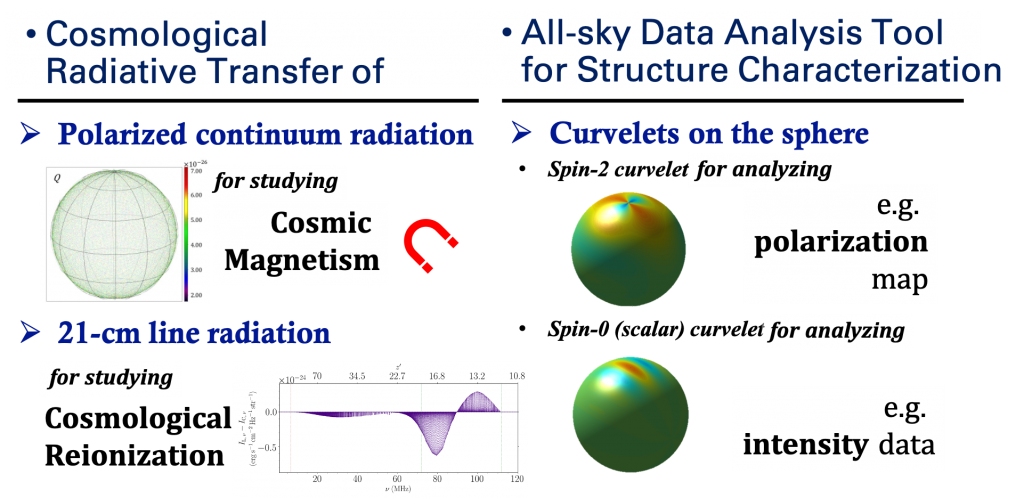Dr. Jennifer Y.H. Chan CITA Postdoctoral Fellow, is awarded the 2020 Michael Penston Thesis Prize
Announced today, CITA fellow Dr Jennifer Y. H. Chan was awarded the 2020 Michael Penston Prize from the (UK) Royal Astronomical Society for her PhD thesis, “All-sky Radiative Transfer and Characterisation for Cosmic Structures”. This Prize is for the best doctoral thesis in astronomy and astrophysics in the UK.
“It is a privilege to do science research, and I am deeply honoured that my thesis work receives the recognition of the Michael Penston Prize.” Dr Chan says, “This achievement is not just my own – without those who have helped, encouraged, and supported me along the way, I wouldn’t be able to make it this far. I am very grateful for my PhD supervisors and my collaborations. I am also very grateful for those who enlighten my scientific path and have provided me with valuable education and research opportunities”.
Dr Chan is keen to understand how the Universe comes into its form today. “To understand how the Universe evolved from its past to its present, scientists make use of the cosmic messengers that we receive, e.g. electromagnetic waves. A proper understanding of how information is encoded into this cosmic radiation is essential for meaningful comparisons between our theoretical understanding and observational view of the Universe. Reliable data analysis methods that accurately extract information from data are also critical. My thesis research addresses these two challenges by developing appropriate all-sky methodologies and concrete theoretical formulations of radiative transfer in an expanding Universe. These developments will allow astrophysicists to utilize current and future radio survey data for advancing our understanding of the magnetic plasma-filled Universe. I am particularly thrilled by the opportunities to move our knowledge frontier with the upcoming unprecedentedly powerful radio telescope, the Square Kilometre Array (SKA), as we bring theory and observation hand in hand!”

Jennifer’s thesis addresses the challenge of extracting scientific information from wide-sky astronomical data and cosmological data in two main aspects. First, it has developed concrete theoretical frameworks of cosmological radiative transfer that allow astrophysicists to make precise predictions of radio sky signals associated with magnetic fields in the Universe and signals from cosmological reionisation. Second, it has constructed a novel data analysis tool that can efficiently extract elongated structures within our celestial sky maps (or any 360-degree images). These developments will allow meaningful comparison between theory and observation of the expanding Universe that we live in.
Dr Chan added, “Stargazing was a luxury in my childhood — I grew up in Hong Kong, a very vibrant city but light pollution and high-rise buildings often obstruct the sky view. Whenever I think about how I have come so far to become an astrophysicist, I count myself very blessed. The journey has been filled with lots of surprises. The recent one is finishing my PhD thesis during the pandemic. At times of crisis, fear stirs up. I have been fortunate to get timely helpful advice from my respectful teacher, Prof Kinwah Wu (MSSL-UCL), that it is okay to feel bad, but not to let fear sink in and override us, and that the way to counter fear is to focus on things we can do but not what we cannot. These few words have guided me through my final thesis sprints and other challenging time. I, therefore, would like to share them, hoping that some students who see this may also be encouraged”.
Juna Kollmeier, Incoming CITA Director, exclaims that “Dr. Chan’s work exemplifies the type of intellectual fearlessness, rigor, and fortitude that characterize CITAzen scientists. It is fantastic that the Royal Society has recognized her accomplishments during her PhD with the Penston Prize and we are delighted to support her in liberating her tremendous scientific potential in this next phase of her journey, as a CITA Fellow”.
For more information, please visit:
